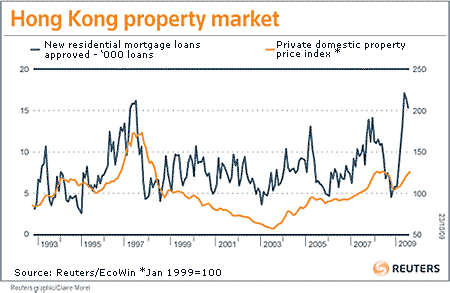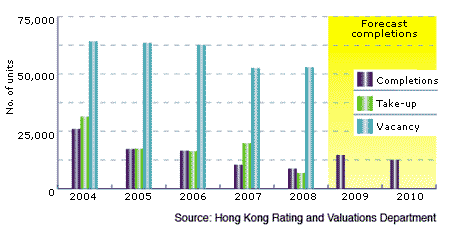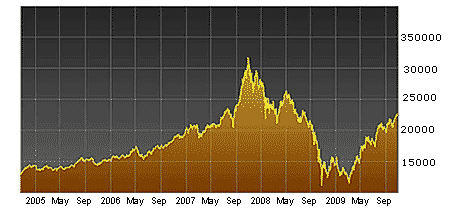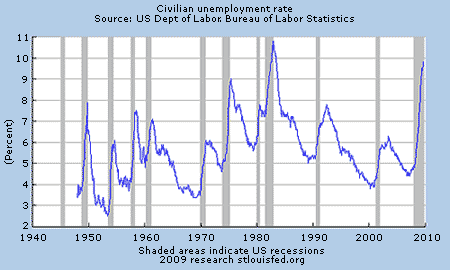The two bubbles building in Hong Kong
Cash-rich millionaires from mainland China, and America's easy-money policies, are fuelling bubbles in Hong Kong's property market and stock exchange. So are these two bubbles about to burst? Cris Sholto Heaton investigates.

Get the latest financial news, insights and expert analysis from our award-winning MoneyWeek team, to help you understand what really matters when it comes to your finances.
You are now subscribed
Your newsletter sign-up was successful
Want to add more newsletters?

Twice daily
MoneyWeek
Get the latest financial news, insights and expert analysis from our award-winning MoneyWeek team, to help you understand what really matters when it comes to your finances.

Four times a week
Look After My Bills
Sign up to our free money-saving newsletter, filled with the latest news and expert advice to help you find the best tips and deals for managing your bills. Start saving today!
On a flying visit through Hong Kong this week, there are two obvious signs of how much the mainland Chinese economy has picked up. Neither is very welcome.
The first hits you the instant you get off the plane. Air pollution is appalling, turning the sky an unpleasant grey colour and obscuring views of the iconic skyscrapers down in Victoria Harbour.
Smog is a long-standing problem for Hong Kong, as smoke from factories in Guangdong drifts down the Pearl River Delta and combines with shipping fumes and emissions from the city's coal-fired power plants. One of the few good side effects of the global recession was that the slump in output on the mainland dramatically improved air quality, but with production ramping up again, things seem worse than ever.
MoneyWeek
Subscribe to MoneyWeek today and get your first six magazine issues absolutely FREE

Sign up to Money Morning
Don't miss the latest investment and personal finances news, market analysis, plus money-saving tips with our free twice-daily newsletter
Don't miss the latest investment and personal finances news, market analysis, plus money-saving tips with our free twice-daily newsletter
Long-term, this is an issue that the local authorities and Chinese government are going to have to tackle. If they don't, the second unwelcome trend from the recovery might fix itself a little too permanently, as people decide that a smog-wreathed city is not the best place to live
Is Hong Kong property in a bubble?
That trend is the boom in Hong Kong property. You may well have read about the world record price just paid for one apartment: HK$439m (US$57m) or HK$71,280 per square foot for the '68th floor' in a new prime development in the Mid Levels district of the city. (The building is actually on the 39th floor floor numbers considered unlucky are routinely skipped in China.)
The buyer is anonymous, but is believed to be from the mainland, making him or her the most high-profile example of a trend that's pushing up luxury residential prices in the city: the new millionaires and billionaires of China snapping up top addresses in their country's richest region.
The high prices being paid are causing some alarm about a possible property bubble. In an effort to cool things down, the Hong Kong Monetary Authority, the territory's de facto central bank, has just cut the maximum mortgage for properties above HK$20m to 60% of the property's value, from 70% before.
Still, that's unlikely to stop the boom: mainland buyers usually pay in cash, as did this record-breaker. Of course, they may well have quietly borrowed the money in mainland China. But even if they didn't, the buoyant mood among mainland buyers is being helped by the Chinese government's policy of prodding banks to lend, which has driven an extremely strong recovery.
Once again, we're seeing how dramatically Hong Kong's small, open economy is affected by external conditions. And it's not just Chinese monetary policy that matters. Hong Kong operates a currency board system directly tying the Hong Kong dollar to the US dollar at a fixed rate of HK$7.75-HK$7.85 - this in effect obliges Hong Kong to import US monetary policy.
Mass-market prices have rebounded as well
So while the boom in luxury property is due mostly to easy conditions on the mainland, a similar rebound in lower-end property owes much to easy money in America. Low US rates trigger low rates in Hong Kong, making mortgages more affordable and pushing up the price local buyers can afford to pay. As the chart below from Reuters shows, the slump in prices last year has now been almost completely erased.

The Hong Kong property market is exceptionally complicated. New space to build on is in short supply: spare land is controlled by the government, which only releases it when a developer makes an application at a price close enough to its target. Property firms have been complaining that the government hasn't been releasing enough land in recent years, constraining new supply. Certainly, new completions have been falling steadily, as the chart below shows.

In this climate, there are good reasons for Hong Kong prices to be high. But the risk is that buyers on current low rates may find themselves trapped with mortgages they can't service if rates pick up in the near future. Certainly the authorities seem to be worrying about this; the government-owned Hong Kong Mortgage Corporation, which underwrites many local mortgages as part of a government programme to increase home ownership, is now heavily promoting longer-term fixed rate mortgages.
Because of its unusual nature, I wouldn't say that Hong Kong property is a clear bubble at the moment; in a market with such severe supply constraints, any fall in financing costs is bound to drive up prices. But it has some worrying features that could lead to one.
Stocks are being pumped up too
And it's not only property that's being affected. Easy money has also pumped up stocks; the Hang Seng is up almost 100% from its low in March.

This isn't just about enthusiasm for China; the Hong Kong dollar peg makes the Hang Seng highly sensitive to ebbs and flows in global liquidity, and thus it's an obvious way to trade them. When the Fed is pumping money into the global system, traders go long the Hang Seng hence the melt-up in late 2007 as the US slashed rates at the start of the credit crunch.
Governments will struggle to prevent asset bubbles
Hong Kong's sensitivity to ultra-easy central bank policy elsewhere flags up what will be a very big issue for Asian governments over the next few years. China and the rest of emerging Asia is likely to begin tightening policy once the recovery solidifies. But what about the Western world? One look at data as bleak as US unemployment reinforces my view that monetary policy there is going to stay loose for a very long time.

Many analysts seem to be expecting the Fed to start raising rates again next year, encouraged by signs that the US is growing again. But the rebound is largely the result of enormous fiscal stimulus; once this wears off, a relapse looks likely. And with the West then remaining sluggish for a long time, it's hard to see any sustained effort to ratchet up interest rates.
This puts the West in much the same situation as Japan in the last two decades, where easy money did little to boost the economy, because the focus was on deleveraging after years of running up too much debt. Instead, easy money flowed abroad via carry trading (borrowing in a cheap currency and spending, or lending, in a stronger one) and helped to inflate asset prices all around the world.
The same could easily happen again as Western investors chases growth in Asia, while their central banks keep policy very lax in a futile attempt to kick-start their economies. Given the speed with which markets have rebounded, some would argue this is already happening, but there is a real risk of a far greater bubble than the excessive exuberance we're seeing at the moment.
In short, we're going to see a contest between the political difficulty of raising rates and the need to keep asset bubbles under control. How this pans out isn't clear yet, but we can make some guesses. If commodity prices keep soaring, expect governments to come down hard on commodity speculators; this will play well politically. Also expect more countries to enact controls on hot money; Brazil led the way last week by putting a 2% tax on foreign investment in local stocks and bonds.
However, there is a more positive side to all this. Asian governments are finally likely to be forced to let their undervalued currencies appreciate in order to restrict hot flows into their markets. For that reason, in the long run, I'm bullish on most Asian currencies against Western ones. For more on this, see this recent article by my colleague John Stepek: Cheap money is all that's keeping stocks afloat - but it won't last.
This article is from MoneyWeek Asia, a FREE weekly email of investment ideas and news every Monday from MoneyWeek magazine, covering the world's fastest-developing and most exciting region. Sign up to MoneyWeek Asia here
Get the latest financial news, insights and expert analysis from our award-winning MoneyWeek team, to help you understand what really matters when it comes to your finances.

Cris Sholt Heaton is the contributing editor for MoneyWeek.
He is an investment analyst and writer who has been contributing to MoneyWeek since 2006 and was managing editor of the magazine between 2016 and 2018. He is experienced in covering international investing, believing many investors still focus too much on their home markets and that it pays to take advantage of all the opportunities the world offers.
He often writes about Asian equities, international income and global asset allocation.
-
 How should a good Catholic invest? Like the Vatican’s new stock index, it seems
How should a good Catholic invest? Like the Vatican’s new stock index, it seemsThe Vatican Bank has launched its first-ever stock index, championing companies that align with “Catholic principles”. But how well would it perform?
-
 The most single-friendly areas to buy a property
The most single-friendly areas to buy a propertyThere can be a single premium when it comes to getting on the property ladder but Zoopla has identified parts of the UK that remain affordable if you aren’t coupled-up